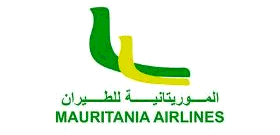 Mauritania Airlines Leases A321 Amidst Capacity Crisis
Mauritania Airlines Leases A321 Amidst Capacity Crisis
Mauritania Airlines is grappling with a significant capacity crunch, forcing the carrier to lease a 17-year-old Airbus A321 from SmartLynx Airlines Ltd. This move, effective July 14, 2025, underscores the airline’s struggle to maintain essential regional routes with a depleted operational fleet.
The leased A321 serves as a temporary fix for Mauritania Airlines’ dwindling capacity. With only two of its six owned aircraft currently operational, the airline has resorted to a series of short-term wet leases from various providers, including Malta MedAir, AirExplore, BH Air, and DAT. However, these arrangements have proven unsustainable, with leased aircraft remaining in service for mere weeks.
This capacity crisis has far-reaching implications for African travel agents who rely on Mauritania Airlines for regional connectivity. Disrupted schedules, limited flight availability, and the uncertainty surrounding future operations pose significant challenges for agents crafting itineraries and managing client expectations.
The Mauritanian government has recognized the severity of the situation and established a technical task force to assess the airline’s operational challenges and propose solutions. This intervention highlights the strategic importance of Mauritania Airlines to the nation’s transport infrastructure and regional connectivity.
The limited operational fleet has forced Mauritania Airlines to prioritize essential regional routes, potentially impacting access to less-served destinations. This disruption could affect tourism to these areas, impacting local economies and creating further challenges for travel agents specializing in niche or off-the-beaten-path itineraries.
The ongoing crisis underscores the broader challenges facing African aviation, including fleet maintenance, access to financing, and operational efficiency. The situation at Mauritania Airlines serves as a case study for the need for greater investment and strategic planning in the sector.
For African travel agents, the capacity crisis at Mauritania Airlines necessitates adaptability and resourcefulness. Exploring alternative carriers, developing multi-modal transport options, and focusing on destinations served by more stable airlines are crucial strategies for mitigating the impact of the disruption.
The SmartLynx A321 lease provides a temporary reprieve, but the long-term viability of Mauritania Airlines hinges on the government task force’s ability to implement effective solutions. The task force’s recommendations will likely focus on fleet renewal, improved maintenance practices, and potentially restructuring the airline’s operations.
The outcome of the government’s intervention will have significant implications for the West African travel market. A revitalized Mauritania Airlines could strengthen regional connectivity, boost tourism, and facilitate trade. However, continued instability could further fragment the market and create opportunities for competing carriers to expand their presence.
African travel agents are advised to closely monitor developments at Mauritania Airlines and adjust their strategies accordingly. Staying informed about the task force’s recommendations, the airline’s fleet renewal plans, and any changes to its route network will be crucial for navigating the evolving aviation landscape in West Africa.
The capacity crisis also highlights the importance of diversification for African travel agents. Expanding into new markets, developing partnerships with alternative carriers, and offering a wider range of travel products can mitigate the risks associated with relying on a single airline or destination.
The Mauritania Airlines situation underscores the interconnectedness of the African travel ecosystem. Airlines, travel agents, tourism boards, and governments must work together to address the challenges facing the sector and ensure its long-term sustainability.
The lease of the SmartLynx A321 is a temporary measure, but it buys Mauritania Airlines valuable time. The coming months will be critical for the airline’s future, and the decisions made by the government task force will have a ripple effect across the West African travel industry.
African travel agents are encouraged to view this crisis as an opportunity for innovation and collaboration. By working together with airlines, tourism boards, and other stakeholders, agents can develop creative solutions that mitigate the impact of the disruption and contribute to a more resilient and dynamic African travel market.
The capacity crisis at Mauritania Airlines is a challenge, but it also presents an opportunity for the African travel industry to demonstrate its adaptability, resilience, and commitment to providing exceptional travel experiences even in the face of adversity.
The SmartLynx A321 represents a bridge to the future for Mauritania Airlines. Whether that future is one of renewed growth and stability or continued uncertainty remains to be seen. The decisions made in the coming months will determine the airline’s fate and shape the future of air travel in West Africa.
